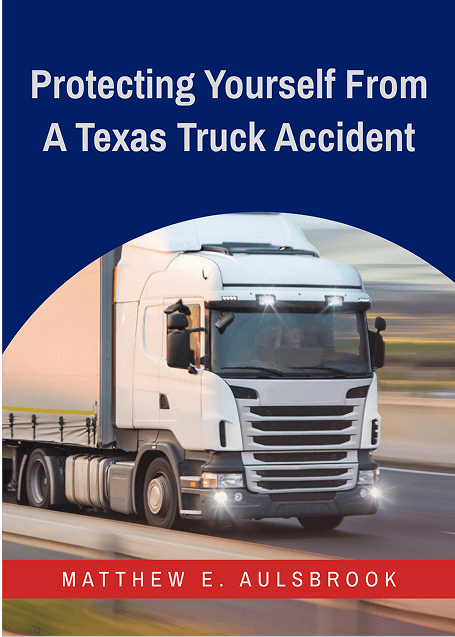All trucking companies must uphold the standards of the Federal Motor Carrier Safety Act (FMCSA) if they’re going to engage in interstate commerce. The federal trucking laws established the minimum industry standards, and the freight companies are regulated to uphold the minimum standards.
Trucking companies have some of the most dangerous vehicles on the roads. That is why it is absolutely necessary for them to hold themselves to the highest safety standards. There is just a potential for serious accidents when trucks are involved, and that’s why they are regulated to maintain insurance policies that are much higher than the minimum policies for regular passenger cars.
If somebody was harmed by a truck wreck, he or she should definitely reach out to a truck wreck lawyer to determine what sort of compensation amounts can be available. Speak to a diligent attorney to learn about the trucking laws and regulations in Dallas.
Who Regulates The Standards for Commercial Trucks?
The federal government, via the Department of Transportation, regulates the trucking industry and that includes the Federal Motor Carrier Act, Federal trucking laws, and the Industry Standards and Regulations are socially related. The federal trucking laws like the Federal Motor Carrier Act established the minimum standards of care, the standards in the industry should frequently go above and beyond the minimum standards set by the Motor Carrier Safety Act regulation.
The Federal Motor Carrier Safety Act regulations are complex and lengthy, and they regulate everything from the maintenance and inspection of the equipment involved in trucking, driver qualifications, and the actions that a driver must take while in the truck. So trucking accident attorney used to be knowledgeable on the regulations to be able to properly handle a trucking case.
FMCSAR’s cover a wide variety of activities including the number of hours a driver can drive before regarding rest, routine inspection, and maintenance of trucks, the amount of sleep a truck driver must get, and the types of medication or drugs a certain driver may or may not use in order to keep the truck drivers alert and rested.
How Does The Federal Motor Carrier Safety Administration Come Up With The Regulatory Standards?
The federal truck safety rules were first issued in 1936 by the Bureau of Motor Carriers, which is the division of the Interstate Commerce Commission or ICC. When the DOT was established on October 15th, 1966, the ICC’s regulatory authority over truck and bus safety were transferred to the DOT, delegated to the FHWA, and designated the Office of Motor Carrier Safety.
Since 2000, the FMCSA has been responsible for establishing and enforcing safety regulations for commercial motor vehicle operators and drivers regulating interstate transportation by large trucks, buses, and household goods, operations.
It follows intrastate hazardous materials transportation, establishing and enforcing standards that states must follow concerning the application and testing process and the procedures for all individuals seeking a commercial driver’s license or CBL and then providing financial and technical assistance to state the local government to enforce state safety programs based on the FMCSA’s regulations.
Upholding Trucking Standards
The burden to uphold these standards is solely up to both the trucking company and the truck drivers themselves. The trucking company has a duty to maintain roadworthy trucks and provide the training to properly adhere to the federal trucking laws.
The driver has the duty while on the road to make sure they constantly checking the truck to make sure maintenance is wearing properly, one is not driving while fatigued in order to maintain the proper awareness while driving. So the burden rests on the motor carrier and the driver.
What Kinds Of Insurance Coverage Must Be Obtained By Trucking Companies?
Commercial vehicle drivers are required to meet certain requirements where they lawfully operate on Texas roadways. The minimum coverage in Texas varies based on the vehicle category, and each differs based on aspects such as type of vehicle, the gross weight of that vehicle, and the number of passengers.
The minimum liability insurance requirement is established by the Federal Motor Carrier Safety Administration or FMCSA for trucks operating across state lines. So the minimum is $300,000.00 for trucks weighing less than 10,001 pounds and transporting non-hazardous materials.
Then, it goes 750,000 for trucks weighing at least 10,001 pounds in transporting non-hazardous materials. Then, most to $1 million dollars for trucks transporting oil, and then it goes up to $5 million for trucks carrying hazardous materials.
Who Can Be Held Liable For A Truck Accident?
Well, a truck wreck is more complicated than a collision that occurs between two passenger vehicles. For starters, it’s just commercial trucks. Commercial truck wrecks result in much more serious damages and injuries. These types of collisions are often further complicated because several parties could’ve played a role in causing the accident.
Numerous parties are involved with putting a commercial truck in service and maintaining it. Due to this, there typically multiple parties liable for the crash. Those could include the truck’s driver, the company that leased the truck, the truck’s owner, the loader or owner of the vehicle’s shipment, the manufacturer of the truck, or the vehicle’s components.
Schedule a Consultation with an Experienced Truck Accident Lawyer
A truck driver has a difficult job, and all kinds of weather and traffic, the ability to maintain alertness is essential. The purpose of the trucking a law is to regulate the trucking industry in order to protect everyday commuters who also share the road with these large tractor-trailers.
When accidents occur as a result of the disregard of these laws, negligence could be easily demonstrated in a civil court. Compensation for injuries that they sustained as a result of the disregard of safety rules could be sought. If you were injured in a collision, a knowledgeable truck wreck attorney could help you understand the trucking laws and regulations in Dallas as well as your legal options for compensation.











